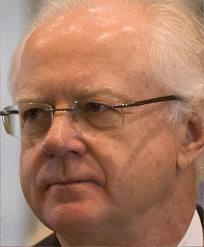U.S. Stops Keystone I Line from Restarting After 12th Spill in 12 Months, Days Before Comment Period Ends on Keystone XL
For over a year, TransCanada has been trying to get its hands on a Presidential Permit from the U.S. Department of State to extend its Keystone I tar sands pipeline with a pipeline called Keystone XL. That extension would start in Alberta, Canada, link on to Keystone I in the Midwest and attach on its Southern end in Oklahoma before it heads through Texas and ends at Gulf Coast refineries. During this same year, though, TransCanada’s Keystone I line has been leaking at an alarming rate.
It’s a fact that tar sands pipelines leak at 16 times more per mile due to internal corrosion, and something that has long been a concern of citizens opposed to the Keystone XL line slated to come through Texas. Today, though, TransCanada’s inability to operate Keystone I without averaging less leaks than one per month has finally gotten to the Department of Transportation (DOT) and United States Pipeline and Hazardous Materials Safety Administration (PHMSA) who today issued an order of corrective action against TransCanada.
TransCanada’s Keystone I line sprung its twelfth leak in nearly twelve months last weekend in Kansas to the tune of 2,100 gallons, only two weeks after a 21,000 gallon leak in North Dakota and ten other smaller leaks.
PHMSA’s statement today notified the public that “Effective immediately, this order prevents TransCanada from restarting operations on their Keystone crude oil pipeline until PHMSA is satisfied with the ongoing repairs and is confident that all immediate safety concerns have been addressed. PHMSA issued the order in connection with two incidents in May involving oil leaks from small diameter pump station pipe fittings,” and DOT’s official letter to TransCanada also reads that “the continued operation of the pipeline without corrective measures would be hazardous to life, property and the environment.”
This corrective order from PHMSA comes just three days before the 45-day comment period on Keystone XL’s Supplemental Draft Environmental Impact Statement (SDEIS) ends on Monday, June 6th.
STOP Founder and President David Daniel had the following to say: “The deck of evidence is stacked against TransCanada. It would be absolutely absurd for the State Department to permit Keystone XL now. The EPA spoke out against Keystone XL’s Draft Environmental Impact Statement and now PHMSA is having to step in to protect citizens from TransCanada’s Keystone I line. For the State Department to allow Keystone XL to go through would be a slap in the face to not only these agencies but to the concerns and livelihoods of millions of Americans, as it too would be, in the Department of Transportation’s own words ‘hazardous to life, property, and the environment.’ TransCanada cannot keep getting away with this. We ask the State Department to take the Department of Transportation’s action today as a warning and say no to a Presidential Permit for Keystone XL.”
To make comments on the Draft Environmental Impact Statement, you can visit http://www.keystonepipeline-xl.state.gov/clientsite/keystonexl.nsf?Open or contact STOP at bdmcallister@stoptarsands.org or 409.550.7961 for more information.







